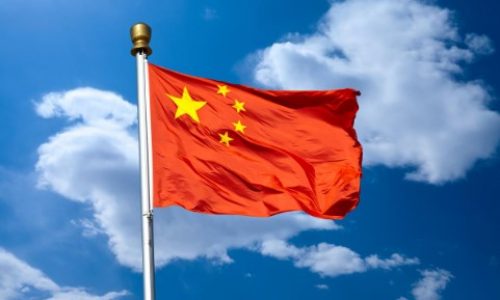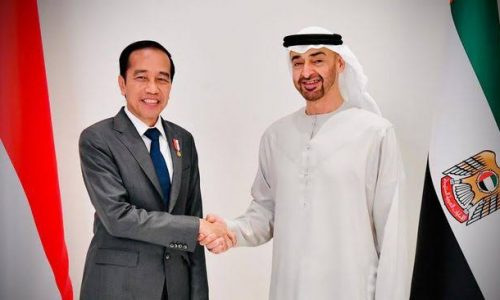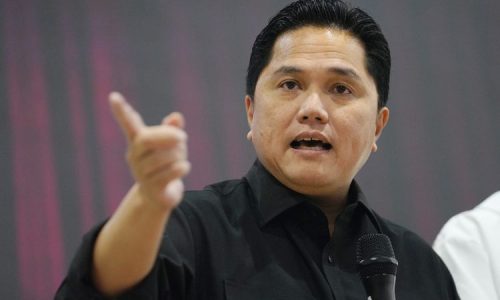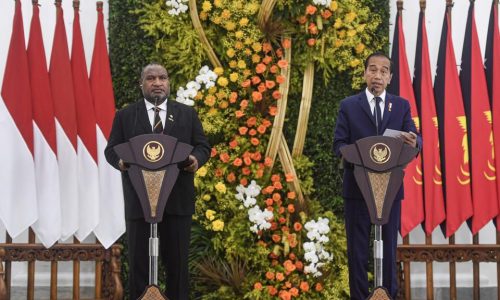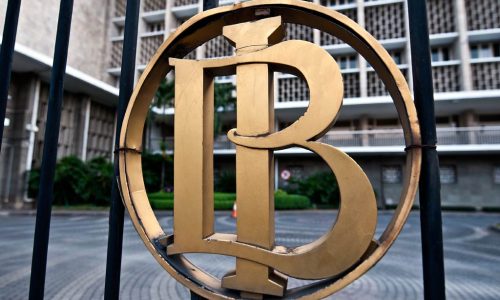President Joko ‘Jokowi’ Widodo of Indonesia held a bilateral meeting with President Xi Jinping of the People’s Republic of China at the Great Hall of the People in Beijing discussing several important key issues one of which is energy.
This meeting was preceded by an official welcoming ceremony. During the meeting, President Joko Widodo addressed several key issues, spanning investment cooperation, trade and finance, energy security, and fostering stronger ties between the two countries’ communities. Additionally, both leaders witnessed the signing of numerous memorandums of understanding (MoUs) aimed at enhancing bilateral cooperation.
Key points from the meeting
Investment Cooperation: President Joko Widodo highlighted efforts to increase investment cooperation, particularly in the areas of electric vehicles (EV), automotive batteries, spare parts factories, petrochemical refineries, steel production, and the development of Halal Centers. He also encouraged follow-up collaboration on the “Two Countries, Twin Parks” economic corridor. Indonesia sought China’s involvement in the development of its new Nusantara Capital City.
Trade and Finance: In the realm of trade and finance, President Joko Widodo commended the steady growth and balance in bilateral trade between the two nations. He emphasized the need to renew protocols, increase the import quota of swallow’s nests, and expand the range of export products, particularly in fisheries, agriculture, and tropical fruits. Financial cooperation was also discussed, including support for local currency transactions through cross-border QR to facilitate export-import and investment.
Energy Security: Indonesia is actively accelerating the addition of 60 GW of new renewable energy plants by 2040. President Joko Widodo sought China’s support for the implementation of the Indonesia-China collaborative electricity cooperation, as energy security has the potential to strengthen cooperation between the two countries.
Community and Education: The leaders discussed ways to increase the exchange of travelers between Indonesia and China. This includes plans to enhance the frequency of direct flights, boost scholarships and vocational training for Indonesian students, and support village cooperation through capacity building for Indonesian village heads.
Global Situation: The two leaders also exchanged views on the current global situation, including the situation in Gaza. Indonesia and China shared a common perspective on the importance of de-escalating the situation and focusing on humanitarian issues.
During the meeting, 10 MoUs were signed, highlighting areas of cooperation between Indonesia and China. These MoUs cover a wide range of subjects, including veterinary inspection and quarantine requirements for wild aquatic products, global development initiatives, joint dialogues between foreign affairs and defense ministers, rural development, poverty alleviation, sustainable development, medicine and health, investment and economic cooperation, capacity building, and sustainable development. The MoUs signed:
- Protocol on Requirement for Veterinary Inspection, Quarantine and Sanitation of Wild Aquatic Products to be Exported from Indonesia to China;
- Protocol on Quarantine and Hygiene Requirements for Edible Aquatic Animals from Indonesia to China;
- MoU on Cooperation in the Implementation of the Global Development Initiative (GDI);
- MoU on Joint Dialogue between Minister of Foreign Affairs and Minister of Defence;
- MoU on Cooperation in Rural Development and Poverty Alleviation;
- MoU on Exchange of Experience for Governance and Sustainable Development;
- MoU on Establishment of Coordination Mechanism for Joint Promotion of Global Maritime Axis and Belt and Road Initiative (BRI);
- MoU on Deepening Cooperation in Medicine and Health;
- MoU on Strengthening Investment and Economic Cooperation; and
- MoU on Capacity Building and Exchange and Cooperation in Sustainable Development.
President Joko Widodo expressed optimism about the future of Indonesia-China relations and encouraged both nations to capitalize on the current positive momentum to strengthen their collaboration.
Focus on green and sustainable projects under the Belt Road Initiative
The Belt and Road Initiative (BRI) is shifting its focus to emphasize environmentally friendly and sustainable infrastructure projects. This change is aimed at implementing eco-friendly practices and addressing the environmental impact of development. The approach is moving away from large-scale projects and concentrating on high-tech ventures such as digital finance and e-commerce platforms.
China is determined to develop “green” infrastructure under the BRI framework to promote environmentally sustainable development. Large projects will be scaled down, and efforts will be redirected toward digital finance, e-commerce, and other high-tech endeavors that are more eco-conscious.
Zhou Guomei, the Director General of the Department of International Cooperation of the Ministry of Ecology and Environment of China, noted the establishment of the International Green Development Coalition BRI, BRI Environmental Big Data Platform, Green Silk Road Envoy Program, and South-South Cooperation Initiative for Belt and Road on Climate Change. These initiatives are designed to enhance environmental management and combat climate change impacts.
Investment challenges
Data from the American Enterprise Institute think tank indicated that over US$ 90 billion worth of Chinese commercial investment in BRI projects has faced “insurmountable problems.”
These problems range from outright cancellations to indefinite delays, often due to political requirements and errors by Chinese firms. Accumulated debt in developing countries is one of the major challenges, as these countries may struggle to repay it.
China is transitioning BRI to focus more on quality than quantity and to address broader issues such as peace, climate change, energy crises, and artificial intelligence. Recent efforts, including debt restructuring for countries like Sri Lanka and Zambia, demonstrate goodwill toward developing nations.
New focus for the Belt Road Initiative
The Belt and Road Initiative is adapting to align with China’s commitment to sustainable development and environmentally responsible practices.
The transition to eco-conscious and sustainable projects aims to address concerns about environmental impact and debt accumulation.
High-tech and green ventures will play a more significant role within the initiative, supporting a broader global agenda that goes beyond infrastructure development.
President Xi Jinping envisions a smaller and greener Belt and Road Initiative, focusing on high-tech projects, digital finance, and sustainable practices. This shift is part of China’s broader efforts to promote a multipolar world order and empower the global south.
China maintains that BRI has good intentions and accuses critics of harboring anti-Chinese bias and attempting to contain China’s rise. The revised focus aligns with the promotion of global awareness about infrastructure deficits and the importance of eco-friendly development practices.
Despite challenges, the Belt and Road Initiative is recognized as a crucial global effort to address infrastructure deficits. While not without its flaws, its global significance is growing, particularly in addressing global issues, peace, climate change, energy crises, and artificial intelligence.
The meeting between Presidents Joko Widodo and Xi Jinping highlighted their commitment to strengthening cooperation between Indonesia and China in various areas, including investment, trade, energy, and community engagement. Meanwhile, the Belt and Road Initiative is evolving to emphasize environmentally sustainable projects and a more eco-conscious approach to global development.




